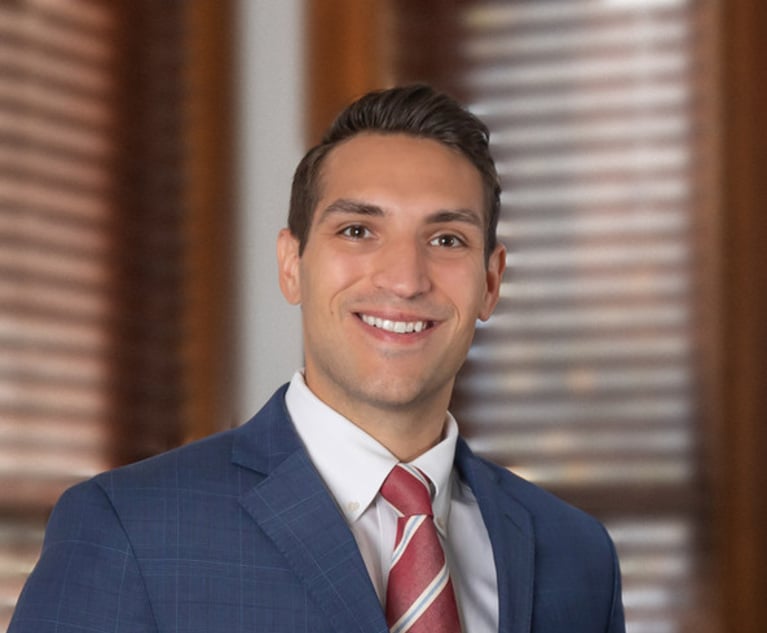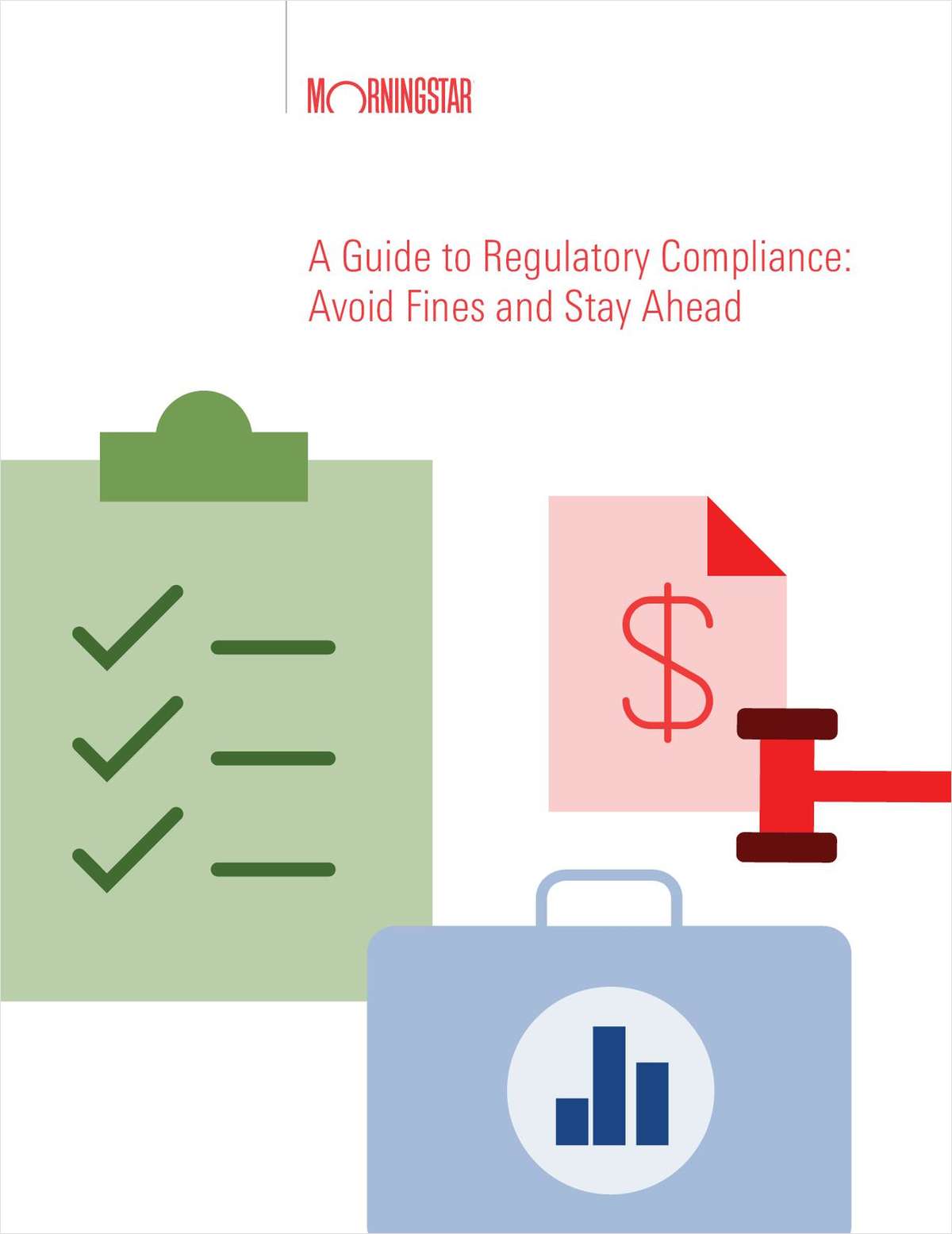Sole Proximate Cause Cited in $1.5 Million City Settlement With Pedestrian Hit in Crash
Henry Cartagena is scheduled to receive $1.49 million from Bridgeport following an accident in which he was struck by a car while standing on the sidewalk. A defective light was to blame for the accident, Cartagena's attorney said.
January 22, 2018 at 03:11 PM
4 minute read

A pedestrian severely injured when he was struck by a minivan that crashed in a Bridgeport intersection in 2014 has settled for nearly $1.5 million.
Council for Henry Cartagena argued sole proximate cause, or 100 percent fault, on the part of Bridgeport in securing the $1.49 million settlement, citing reports that indicated the accident was caused by a malfunctioning traffic light.
City attorney Christopher Rooney of Carmody Torrance Sandak Hennessey in New Haven elected during jury selection to forgo a trial. “It was an extraordinarily complicated case with a lot of difficult questions as to causation,” Rooney said Monday. “It was probably a good resolution of the case and everyone is satisfied.”
Cartagena, now 50, suffered a traumatic brain injury, fractured skull, a broken jaw, spinal injuries and broken ribs when he was struck on the sidewalk and pinned against a building by a minivan that had collided with a pickup truck in a five-way intersection connecting Barnum Avenue and Pixlee Street. An amended complaint arguing “sole direct and proximate result of a breach of the Defendant's statutory duty under C.G.S. §13a-149″ was filed in 2016 in Bridgeport Superior Court.
Represented by Donald Papcsy, Cartagena sued the city under the state's Highway Defect Statute, which requires proof that the defendants were aware a defect existed before the incident. Papcsy, a partner with Papcsy Janosov Roche in Norwalk, said discovery and depositions established the light had been malfunctioning for at least three days before the crash. Witnesses said the traffic light at Pixlee and Barnum was either completely disabled or malfunctioning, with all agreeing the signal would fail to turn green, Papcsy said.
Papcsy said the malfunctioning signal caused Felix Toledo's Ford F-150 to collide with Mariano Nieves' Nissan minivan. The lawsuit states Toledo was on Pixlee Street facing the malfunctioning light, and waited about one minute before slowly proceeding through the intersection, edging into traffic as the light failed to turn green. At the same time, Nieves was traveling east on Barnum Avenue through the intersection, where he had the green light. The cars collided and Nieves' vehicle careened onto the sidewalk on Barnum Avenue, crashing into Cartagena and pinning him against a building. The lawsuit does not indicate how fast the vehicles were traveling, but neither driver was ticketed.
Toledo was not at fault, Papcsy said, “because he proceeded through the intersection with reasonable care.” Likewise, Nieves was not at fault because “his vision was limited by a building that obstructed his view of the road Toledo was coming from. We were able to show evidence at mediation with the judge and the attorneys from Bridgeport that both drivers acted reasonably and cautiously under conditions that the city created.”
New Haven Superior Court Judge Robin Wilson oversaw the mediation.
Papcsy said through discovery he obtained access to alert-system logs and codes indicating someone from the city had opened a traffic box at the intersection two days before the accident. While it is not clear who opened the traffic box, Papcsy said only three city employees have access.
“During deposition they all said they did not remember being there at that time,” Papcsy said. “The city does not keep adequate records of who goes anywhere to maintain traffic lights in the city.”
Papcsy said it would have been nearly impossible for anyone from the city to have been at that intersection two days before and not have seen the light defect. He added that witnesses reported in deposition that the light had been malfunctioning at least four days before the accident.
In addition to ongoing medical expenses and loss of ability to work, Papcsy argued Cartagena “has suffered and will continue to suffer mental anguish, frustration and anxiety over the fact that he was and remains injured.” The lawsuit claimed economic and noneconomic damages as well as compensation for pain and suffering.
The Bridgeport City Council signed off on the settlement Dec. 27, to be paid through self-insurance pending Probate Court approval.
This content has been archived. It is available through our partners, LexisNexis® and Bloomberg Law.
To view this content, please continue to their sites.
Not a Lexis Subscriber?
Subscribe Now
Not a Bloomberg Law Subscriber?
Subscribe Now
NOT FOR REPRINT
© 2025 ALM Global, LLC, All Rights Reserved. Request academic re-use from www.copyright.com. All other uses, submit a request to [email protected]. For more information visit Asset & Logo Licensing.
You Might Like
View All
Second Circuit Upholds $5M Judgment Against Trump in E. Jean Carroll Case
4 minute read

Art of the Settlement: Trump Attorney Reveals Strategy in ABC Lawsuit
Trending Stories
Who Got The Work
Michael G. Bongiorno, Andrew Scott Dulberg and Elizabeth E. Driscoll from Wilmer Cutler Pickering Hale and Dorr have stepped in to represent Symbotic Inc., an A.I.-enabled technology platform that focuses on increasing supply chain efficiency, and other defendants in a pending shareholder derivative lawsuit. The case, filed Oct. 2 in Massachusetts District Court by the Brown Law Firm on behalf of Stephen Austen, accuses certain officers and directors of misleading investors in regard to Symbotic's potential for margin growth by failing to disclose that the company was not equipped to timely deploy its systems or manage expenses through project delays. The case, assigned to U.S. District Judge Nathaniel M. Gorton, is 1:24-cv-12522, Austen v. Cohen et al.
Who Got The Work
Edmund Polubinski and Marie Killmond of Davis Polk & Wardwell have entered appearances for data platform software development company MongoDB and other defendants in a pending shareholder derivative lawsuit. The action, filed Oct. 7 in New York Southern District Court by the Brown Law Firm, accuses the company's directors and/or officers of falsely expressing confidence in the company’s restructuring of its sales incentive plan and downplaying the severity of decreases in its upfront commitments. The case is 1:24-cv-07594, Roy v. Ittycheria et al.
Who Got The Work
Amy O. Bruchs and Kurt F. Ellison of Michael Best & Friedrich have entered appearances for Epic Systems Corp. in a pending employment discrimination lawsuit. The suit was filed Sept. 7 in Wisconsin Western District Court by Levine Eisberner LLC and Siri & Glimstad on behalf of a project manager who claims that he was wrongfully terminated after applying for a religious exemption to the defendant's COVID-19 vaccine mandate. The case, assigned to U.S. Magistrate Judge Anita Marie Boor, is 3:24-cv-00630, Secker, Nathan v. Epic Systems Corporation.
Who Got The Work
David X. Sullivan, Thomas J. Finn and Gregory A. Hall from McCarter & English have entered appearances for Sunrun Installation Services in a pending civil rights lawsuit. The complaint was filed Sept. 4 in Connecticut District Court by attorney Robert M. Berke on behalf of former employee George Edward Steins, who was arrested and charged with employing an unregistered home improvement salesperson. The complaint alleges that had Sunrun informed the Connecticut Department of Consumer Protection that the plaintiff's employment had ended in 2017 and that he no longer held Sunrun's home improvement contractor license, he would not have been hit with charges, which were dismissed in May 2024. The case, assigned to U.S. District Judge Jeffrey A. Meyer, is 3:24-cv-01423, Steins v. Sunrun, Inc. et al.
Who Got The Work
Greenberg Traurig shareholder Joshua L. Raskin has entered an appearance for boohoo.com UK Ltd. in a pending patent infringement lawsuit. The suit, filed Sept. 3 in Texas Eastern District Court by Rozier Hardt McDonough on behalf of Alto Dynamics, asserts five patents related to an online shopping platform. The case, assigned to U.S. District Judge Rodney Gilstrap, is 2:24-cv-00719, Alto Dynamics, LLC v. boohoo.com UK Limited.
Featured Firms
Law Offices of Gary Martin Hays & Associates, P.C.
(470) 294-1674
Law Offices of Mark E. Salomone
(857) 444-6468
Smith & Hassler
(713) 739-1250











